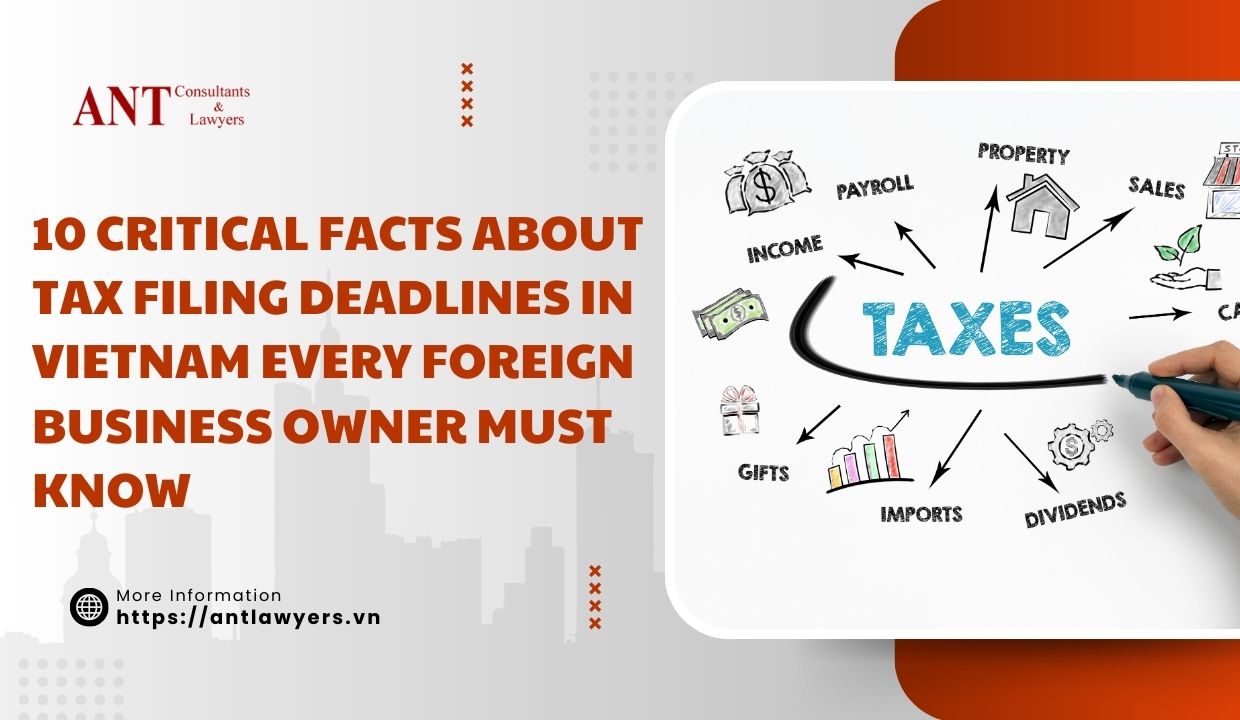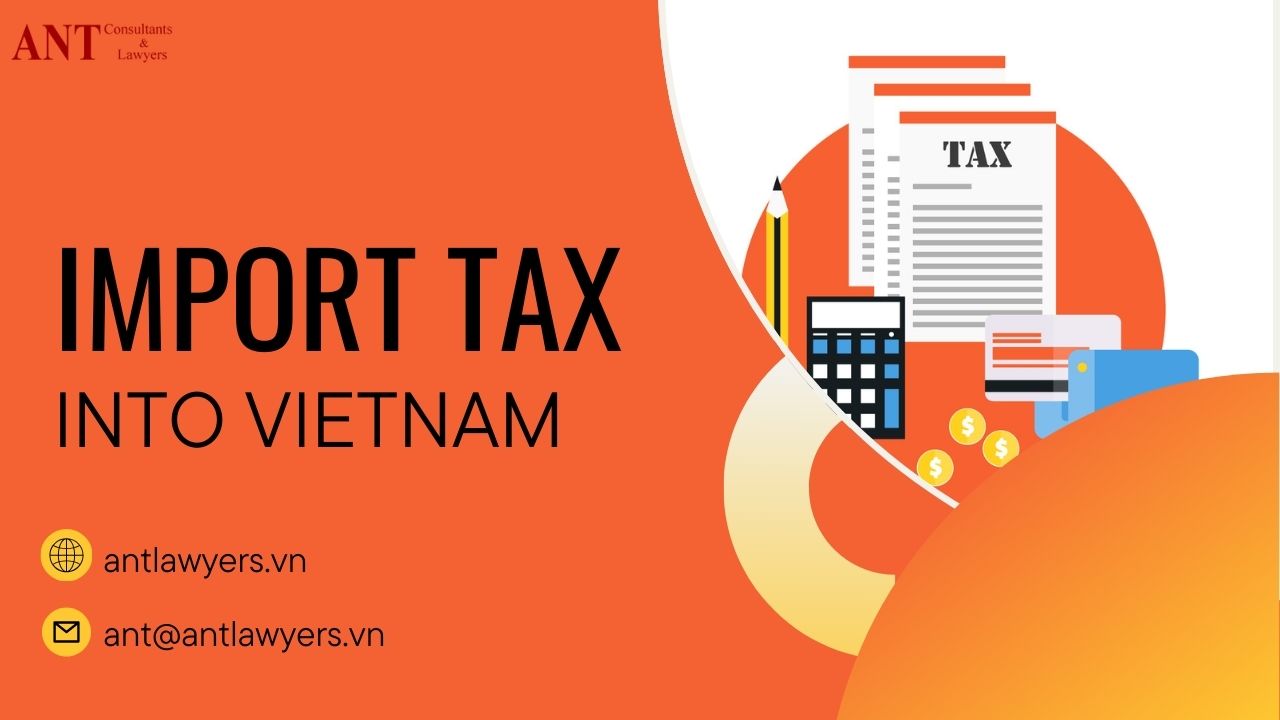Are You Missing Tax Filing Deadlines in Vietnam?
Imagine your business is thriving in Vietnam, profits are growing, and you’re scaling operations. Then, a notification from the tax authority arrives, a penalty for missing a filing deadline.
What seemed like a minor oversight has lead into fines, operational disruptions, and a tarnished reputation.
Tax filing deadlines in Vietnam are non-negotiable. Each missed deadline not only invites financial penalties but also raises red flags with authorities, potentially exposing your business to audits and additional scrutiny.
The good news is that these risks are entirely avoidable with proper knowledge and planning. By understanding Vietnam’s tax filing requirements and timelines, and with the right guidance, you can ensure compliance and protect your business.

Why Tax Filing Deadlines in Vietnam Matter for Foreign Businesses
Vietnam’s tax laws are designed to ensure transparency, compliance, and fair contribution from all businesses operating in its thriving economy.
For foreign entrepreneurs, staying compliant isn’t just about avoiding fines—it’s about maintaining a trustworthy reputation and fostering long-term growth.
Missed deadlines are more than a financial burden. They disrupt business operations, invite scrutiny, and can even lead to the suspension of your business license in extreme cases.
Moreover, Vietnam’s tax laws are constantly evolving, and you need to check out for update. This makes understanding and adhering to tax filing deadlines in Vietnam a must do’s of sustainable business practices.
Breaking Down the Key Tax Filing Deadlines in Vietnam
Vietnam’s tax system encompasses several types of taxes, each with specific deadlines. Let’s explore them in detail:
Annual License Fee
The annual license fee is a mandatory payment based on your company’s charter capital. It serves as proof of your business’s legal operation.
- Filing Deadline: January 30th of the year following your business establishment.
- Special Cases: If your charter capital changes during the year, an updated declaration must be submitted by January 30th of the following year.
Failure to meet these deadlines could lead to fines or complications when renewing your business license.
Value-Added Tax (VAT)
VAT is levied on the added value of goods and services and is a critical component of Vietnam’s tax framework.
- Monthly Filers: Submit VAT declarations by the 20th day of the following month.
- Quarterly Filers: Submit VAT declarations by the last day of the first month of the next quarter.
Choosing between monthly or quarterly filing depends on your business’s revenue and operational structure. Missing these deadlines results in fines that grow with each day of delay.
Corporate Income Tax (CIT)
CIT is calculated based on your business’s profit after deducting allowable expenses, such as salaries and operational costs.
- Quarterly Payments: Due by the 30th day of the first month of the next quarter.
- Annual Finalization: Due within 90 days of the end of the fiscal year.
Quarterly payments require careful estimation of your taxable income. Any discrepancies must be reconciled during the annual finalization process.
Personal Income Tax (PIT)
PIT is a tax on employee income, declared and paid by the employer.
- Monthly Filing: Due by the 20th of the following month for businesses with PIT liabilities of VND 50 million or more.
- Quarterly Filing: Due by the 30th day of the first month of the next quarter for businesses with lower liabilities.
Accurate calculation and timely filing of PIT ensure employee satisfaction and compliance with labor laws.
Common Challenges Foreign Businesses Faced with Tax Filing Deadlines in Vietnam
Language Barriers
Vietnam’s tax regulations and deadlines are typically communicated in Vietnamese, making it difficult for foreign business owners to stay updated without local expertise.
Frequent Regulatory Changes
Vietnam’s tax laws are subject to frequent updates. Staying compliant requires continuous monitoring of legal changes.
Complex Tax Framework
The interplay between different types of taxes—VAT, CIT, PIT, and others—can be overwhelming for those unfamiliar with the system.
Administrative Overload
For small and medium-sized enterprises, managing tax filings alongside daily operations can strain resources and lead to errors.
How to Stay Ahead of Tax Filing Deadlines in Vietnam
Partner with Tax Experts
Engaging tax professionals or lawyers is one of the most effective ways to navigate Vietnam’s tax system. Tax lawyers in Vietnam specialize in tracking deadlines, ensuring compliance, and optimizing your tax strategy.
Maintain a Compliance Calendar
Set up a detailed calendar with all tax filing deadlines and automate reminders to avoid last-minute scrambling.
Invest in Tax Management Software
Leverage technology to streamline tax calculations, filings, and payments. Many software options also provide updates on regulatory changes.
Conduct Regular Reviews
Periodic reviews of your tax filings help identify errors or missed opportunities for deductions and ensure alignment with current laws.
Stay Informed
Keep yourself updated on tax regulations through reliable sources or regular consultations with tax lawyers in Vietnam.
Penalties for Missing Tax Filing Deadlines in Vietnam
Failing to meet tax filing deadlines in Vietnam can result in:
- Late Filing Penalties: Fines increase with each day of delay.
- Interest on Late Payments: Unpaid taxes accrue interest, adding to your financial burden.
- Audit Risks: Repeated violations may trigger audits, leading to further scrutiny of your business operations.
- Operational Disruptions: Persistent non-compliance could result in the suspension of your business license.
The cost of non-compliance far outweighs the investment in proactive tax management.
The Role of Tax Lawyers in Vietnam
Tax lawyers play a pivotal role in helping foreign businesses meet their tax obligations. Their expertise includes:
- Deadline Management: Ensuring all filings are completed on time.
- Regulatory Compliance: Keeping your business aligned with Vietnam’s tax laws.
- Strategic Tax Planning: Identifying deductions and exemptions to optimize your tax strategy.
- Audit Representation: Safeguarding your interests during tax audits.
Engaging tax lawyers in Vietnam not only ensures compliance but also allows you to focus on your core business activities.
Actionable Steps to Avoid Missing Tax Filing Deadlines in Vietnam
- Create a Comprehensive Tax Plan: Include deadlines, responsibilities, and contingency measures.
- Engage Professional Support: Tax lawyers in Vietnam can provide personalized guidance and handle filings on your behalf.
- Use Digital Tools: Automate reminders and leverage tax software to reduce manual errors.
- Educate Your Team: Ensure your internal staff understands the importance of compliance and the timelines involved.
Looking Ahead: Safeguard Your Business with Tax Compliance
Vietnam offers immense opportunities for foreign businesses, but success requires careful planning and adherence to tax filing deadlines. Missing deadlines isn’t just about penalties—it’s about the ripple effect they create, disrupting operations, damaging reputations, and risking long-term growth.
Understanding the intricacies of tax filing deadlines in Vietnam is the first step. The second step is taking action. By partnering with tax lawyers in Vietnam, setting up robust systems, and staying informed, you can ensure your business remains compliant and thrives in this competitive market and meet the tax filing deadlines in Vietnam
About ANT Lawyers, a Law Firm in Vietnam
We help clients overcome cultural barriers and achieve their strategic and financial outcomes, while ensuring the best interest rate protection, risk mitigation and regulatory compliance. ANT lawyers has lawyers in Ho Chi Minh city, Hanoi, and Danang, and will help customers in doing business in Vietnam.
How ANT Lawyers Could Help Your Business?
You could learn more about ANT Lawyers International Trade and Tax or contact our lawyers in Vietnam for advice via email ant@antlawyers.vn or call our office at +84 28 730 86 529





